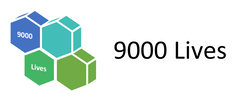Ofsted Framework: Did they listen to advice about SEND?

Many schools have anxiety about both Ofsted and SEND.
Ofsted anxiety is understandable. If you work in a school that is graded inadequate or requiring improvement, making changes takes time. You may be anxious about an Ofsted visit before you have improved enough to get a good grade.
In good or outstanding schools, staff can worry about losing the current grade. They may be anxious to avoid feeling like they’ve let their pupils, colleagues or school down during an inspection.
These worries mean that stories that reinforce Ofsted anxiety spread quickly.
So, it’s good to hear another side – when things go well…
Ofsted published a draft handbook in early 2019. They also trialled it in schools and ran a consultation on it.
This draft handbook indicated that pupils who have sensory impairments (e.g. hearing impairment, visual impairment) have equal starting points to peers who do not have SEND.
This is sometimes true. But it’s often untrue.
For example, if a child’s hearing impairment isn’t spotted early, they miss out hearing language, words and sounds in their pre-school years. This can hinder their language development, social skills and, at times, behaviour. This can mean that they start school at lower starting points than children with no SEND.
9000Lives engaged with Ofsted to recognise this in the final handbook. Ofsted listened. Ofsted made all the changes we advised.
This means that the handbook, used by inspectors, now acknowledges that sensory impairment can impact on children’s starting points.
The final Ofsted Handbook is here. The key sections are on pp. 91-92.
This isn’t a huge difference. It doesn’t change the world. It might not change the inspection result for your school. But, if it makes a difference to one school or one child, then this job well done!
More great reads
Where can I get more advice or support?
- To ask questions or get support for your school’s work, please get in touch.
Get in touch
Have a question? Think we could help you? Please contact us to discuss how we might help you.
Drop us an email or give us a call
director@9000lives.org
0788 42 42 719


